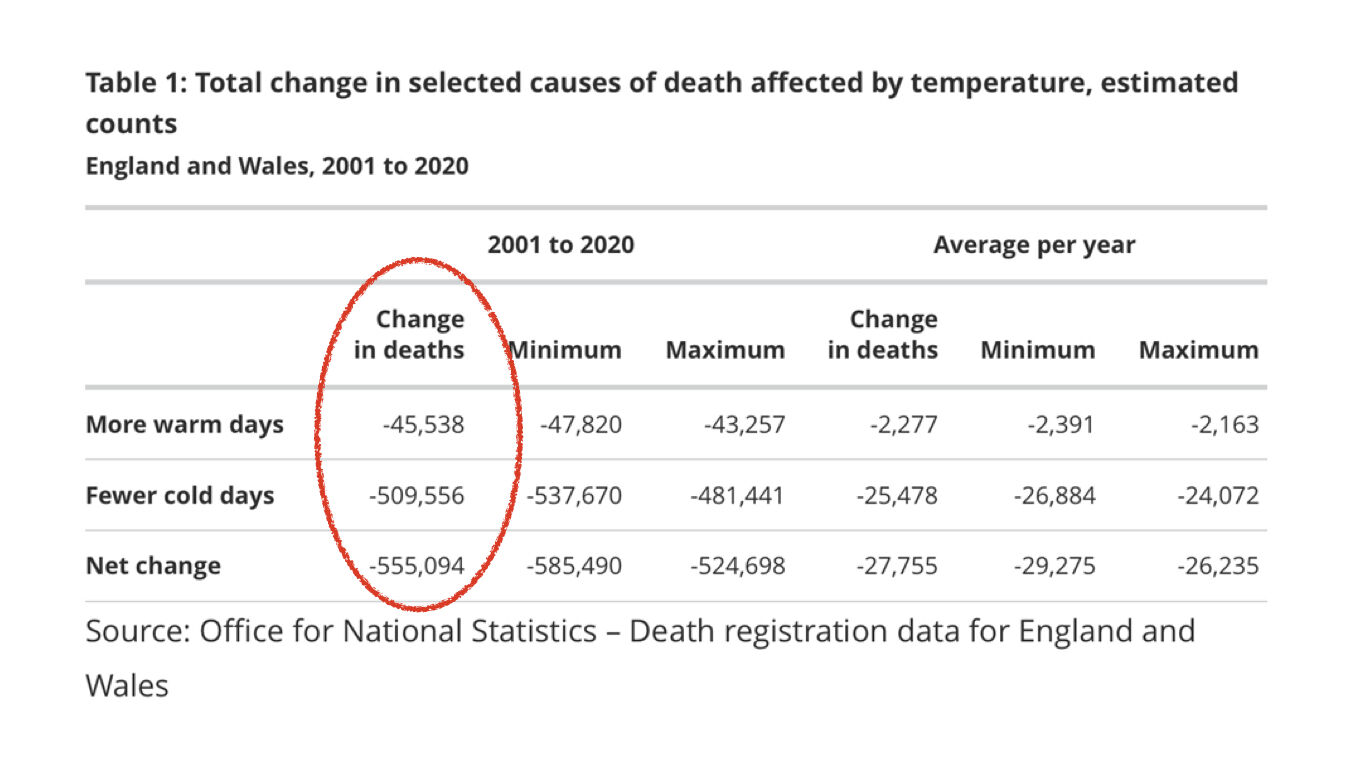Climate | It's nice out
ONS Study Shows Fewer People Dying
- Date
-
 Richard Lyon
Richard Lyon
If your livelihood depends on the $500 billion-a-year climate catastrophe industry, you may want to brace yourself. This is going to hurt.
The UK’s Office for National Statistics (ONS) has issued a report1. Temperatures in the UK have risen in the last 20 years.
That’s not news, of course. Temperatures have been rising since the end of the mini-ice age in 16th Century. The increase falls well within the range of natural variation, and in the bottom 10% of the aggregate range predicted by the comically broken toy climate physics models that are the basis of alarmist claims about the future.
The news is that, in the same period, over half a million fewer Britons have died of temperature related causes.

As it warms, fewer people die.
This is well understood. Heat kills frail people. But a 1 degree increase in temperature kills about a tenth of the people that a 1 degree decrease does. In the UK, around 55,000 more people die in a cold winter than in a hot summer.
Relatively few die of hypothermia. They die because, when you’re cold, every other cause of infirmity that kills vulnerable people - stroke and circulatory disease, weak immune systems, brittle bones - is made worse.
The significance of this to current energy policy is deeply troubling.
The attempt to replace an energy system based on affordable, high gradient sources such as hydrocarbon with expensive, low gradient sources such as wind and solar is making energy unaffordable for many people.
The rising intermittency inherent in large scale wind and solar will soon make energy unavailable for extended periods for everyone.
Attempts to mitigate intermittency, such as installing vast battery banks, or a duplicate thermal generation system of equal peak generation capacity, make it even more unaffordable.
Rising unaffordability and unavailability of energy under climate catastrophe policies increases the exposure of the population to cold conditions. Exposure is experienced most by the people most vulnerable to the aggravating effects of coldness on poor health - the elderly, the infirm, the economically disadvantaged.
A tiny increase in temperature over the last few decades has reduced deaths in the UK by over half a million. The large increase in coldness from so-called “Net Zero” policies will increase deaths, in numbers measured in millions.
This is the madness of such policies. Real deaths, measured in millions, occurring in the next few decades, caused by a misguided attempt to avoid hallucinated deaths in the distant future.
We must end this madness, and now. Energy policy must be placed on a solid scientific foundation, and prioritise the radical destruction of discretionary energy consumption and the protection of an affordable, durable energy system based on high gradient sources such as gas and nuclear.